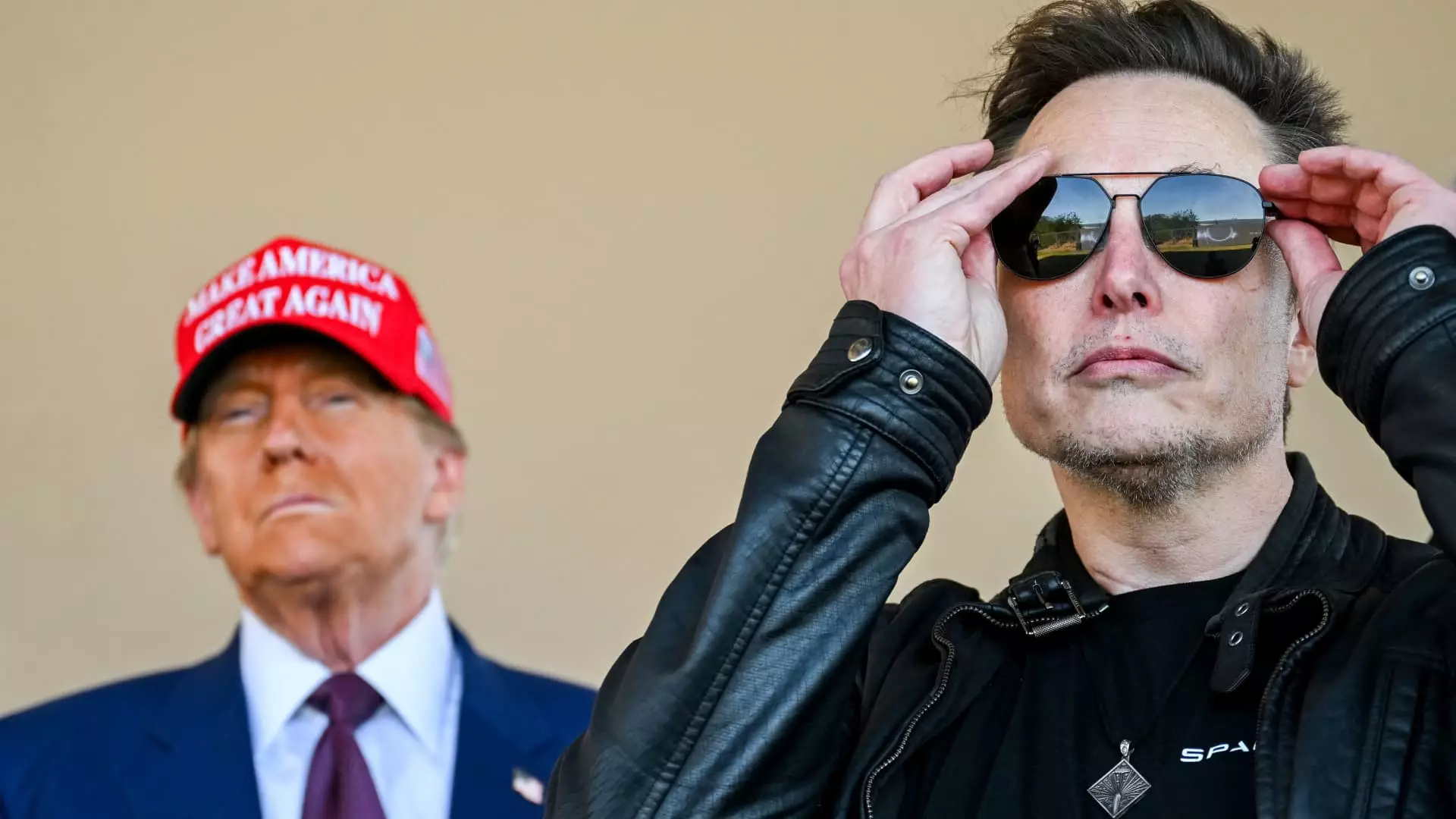In a landscape where technology and politics increasingly intertwine, the recent behavior of Elon Musk concerning Congress raises questions about the degree of influence that leading tech figures wield over the legislative process. As lawmakers navigated yet another crisis involving government funding, Musk’s formidable presence on social media became a focal point of discussion, especially in relation to the incoming administration of President-elect Donald Trump. The intersection of these actors illustrates a shifting power dynamic that merits examination.
Elon Musk, the CEO of Tesla and SpaceX with a staggering social media following exceeding 208 million on X (formerly Twitter), utilized his platform to publicly oppose a bipartisan funding bill. His tweets were not only emblematic of his tendency to engage directly with political discourse; they effectively introduced an element of chaos into congressional negotiations. Lawmakers such as House Speaker Mike Johnson and Senate Democrats found themselves grappling with both an urgent need to fund the government and the repercussions of Musk’s online persona. His declaration, that representatives supporting the funding legislation would face retribution at the ballot box, signaled an aggressive stance on fiscal policy that some legislators interpreted as undermining traditional political processes.
Although Musk attempted to downplay the extent of his influence, referring to individual lawmakers’ decisions as their own, the implications of his intervention suggest a deeper narrative of political engagement. The hashtags and discussions prompted by his tweets beg the question: Is a technology mogul now effectively steering political discourse, positioning himself as a gatekeeper of public opinion, influencing votes through direct social media engagement?
Reactions from lawmakers highlighted the fragmented nature of contemporary politics. Democratic representatives like Jim McGovern and Rosa DeLauro were quick to criticize what they perceived as capitulation to Musk’s interests. Their opposition was rooted in concerns that Musk’s influence reflects a broader trend where wealthy individuals manipulate political outcomes based on personal agendas. In their view, Musk’s actions jeopardized bipartisan efforts and illustrated a troubling dependence on the wishes of a billionaire, illustrated by McGovern’s comments regarding Musk’s intentions to foster good relations with China.
Conversely, some Republican voices, notably Tennessee Senator Bill Hagerty, praised Musk’s transparency in uncovering the details of the funding bill. His assertion highlighted a flawed perspective — that tech-driven transparency is a necessary antidote to government opacity. This idea is emblematic of a deep ideological rift; while Republicans may endorse Musk’s directness as a form of democratic engagement, Democrats view it as a disruptive force undermining established political norms.
In the commentary surrounding Musk’s influence, Congressman Tony Gonzales likened Musk’s stature to that of a “prime minister,” raising eyebrows and underscoring a new political reality where unelected individuals can hold considerable sway. This comparison is not only hyperbolic but reveals the extent to which figures like Musk are perceived as leaders in a political landscape that appears increasingly populist. In moments of crisis, such as the lead-up to urgent legislative packages, Musk’s vitriol resonates with segments of the population seeking a fresh narrative against the backdrop of perceived governmental inefficiency.
As Congress ultimately crafted a last-minute solution to avert a shutdown, observers recognized that the maneuvering was not merely about policy but encompassed a broader struggle for ideological control within the Republican Party and beyond. The dichotomy between President Trump as a traditional party leader and Musk as a quasi-political influencer illuminates the complexities of modern governance. Analysts now must ask: where does one figure end, and the other begin in the scope of political action and influence?
Looking ahead, the interplay between heavyweight entrepreneurs like Musk and officials in Washington beckons contemplation about the future trajectory of U.S. governance. A recurring theme among lawmakers postured a concerning view — that without cohesive strategies, chaotic political negotiations might emerge as standard practice. The anticipation surrounding potential government funding disputes in March foreshadows an environment rife with uncertainty, especially as Musk and individuals of his ilk remain active in public discourse.
Senator Chris Coons poignantly encapsulates the essence of this tumultuous period by suggesting that the confluence of Musk’s candor and Trump’s influence may generate “instability” in tackling pivotal legislative matters. As society continues to grapple with the repercussions of digital influence in political arenas, the necessity for regulation and the development of protocols surrounding such power becomes increasingly salient. The narrative of Elon Musk’s engagement with American governance thus represents a new era, one where the lines between business, technology, and politics are continually redrawn amidst rising tensions and transformational shifts.


Leave a Reply